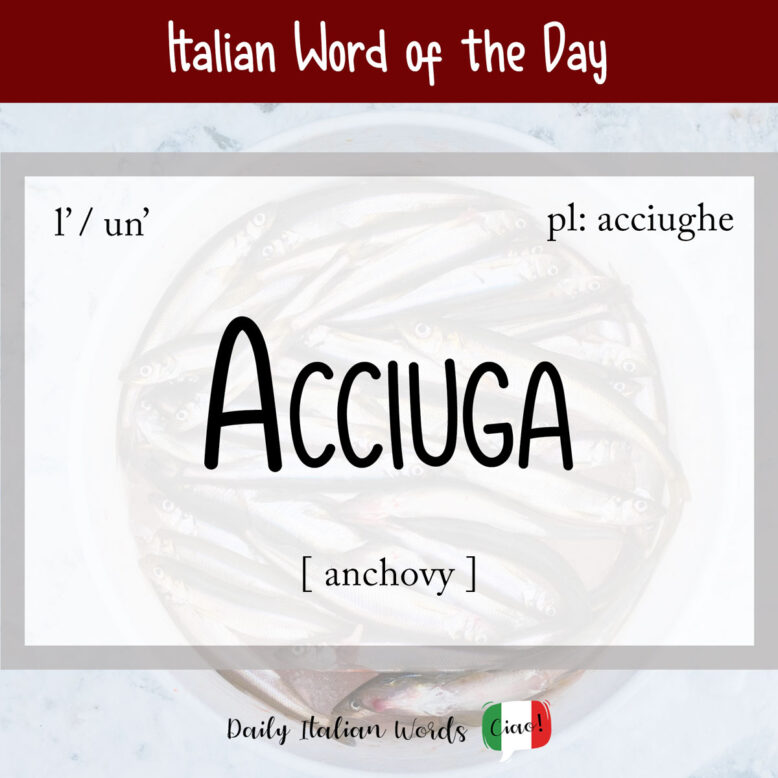My favourite pizza topping of all time, with perhaps the exception of gorgonzola cheese, is the anchovy. This word translates as acciuga (feminine) in Italian, though it is usually seen in its plural form acciughe (anchovies).
acciuga
anchovy

Here are the definite and indefinite articles you need to use with this noun:
- l’acciuga = the anchovy
- un’acciuga = an anchovy
- le acciughe = the anchovies
- delle acciughe = some anchovies
This small oily fish is found throughout the world’s oceans, and keeps very well in oil (acciughe sott’olio), brine (acciughe sotto sale), or in the form of anchovy paste (pasta di acciughe).
Vorrei una pizza con le acciughe e una birra rossa.
I would like a pizza with anchovies and a red beer.

The expression stare pigiati come (le) acciughe literally means to be packed like sardines. Pigiati is the plural past participle of the colloquial verb pigiare, which means to press, to push.
Figuratively, acciuga can function as a nickname for a very thin person.
Sara è diventata magra come un’acciuga da quando ha cominciato a correre tutti i giorni.
Sara has become as thin as a rake ever since she started running every day.
Heather Broster is a graduate with honours in linguistics from the University of Western Ontario. She is an aspiring polyglot, proficient in English and Italian, as well as Japanese, Welsh, and French to varying degrees of fluency. Originally from Toronto, Heather has resided in various countries, notably Italy for a period of six years. Her primary focus lies in the fields of language acquisition, education, and bilingual instruction.


